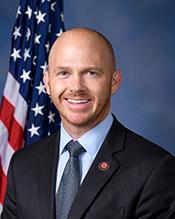0
CBDC Anti-Surveillance State Act
12/15/2023, 3:54 PM
Summary of Bill HR 1122
The main provisions of the bill include prohibiting the government from mandating the use of CBDCs for transactions, ensuring that individuals have the right to use alternative forms of payment, and establishing strict limits on the collection and use of personal data related to CBDC transactions. Additionally, the bill requires transparency and accountability from government agencies involved in the implementation of CBDCs, and mandates regular audits to ensure compliance with privacy protections.
Supporters of the bill argue that it is necessary to safeguard individual privacy and prevent the government from overreaching in its surveillance efforts. They believe that CBDCs have the potential to be used as a tool for mass surveillance and control, and that this legislation is crucial in protecting civil liberties in the digital age. Opponents of the bill, on the other hand, argue that it could hinder efforts to combat financial crimes and terrorism, as well as limit the government's ability to regulate the financial system. They also raise concerns about the potential for CBDCs to be used for illicit activities, and believe that the bill could undermine national security efforts. Overall, Bill 118 hr 1122 is a significant piece of legislation that addresses important issues surrounding privacy and surveillance in the digital age. Its fate in Congress remains uncertain, but it has sparked a debate about the balance between individual rights and government oversight in the use of digital currencies.
Congressional Summary of HR 1122
CBDC Anti-Surveillance State Act
This bill limits the ability of the Federal Reserve to (1) provide direct services to individuals, and (2) use a central bank digital currency. A central bank digital currency is a digital currency (e.g., Bitcoin or Ether) issued by a government-backed central bank.
Specifically, the bill prohibits the Federal Reserve and the Federal Open Market Committee from using any central bank digital currency to implement monetary policy. In addition, a Federal Reserve bank is prohibited from offering products or services directly to an individual, maintaining an account on behalf of an individual, or issuing a central bank digital currency directly to an individual.
The Federal Reserve must (1) consult with each Federal Reserve bank with respect to any central bank digital currency study or pilot program, and (2) issue quarterly reports on the findings and determinations of any such study or program.





